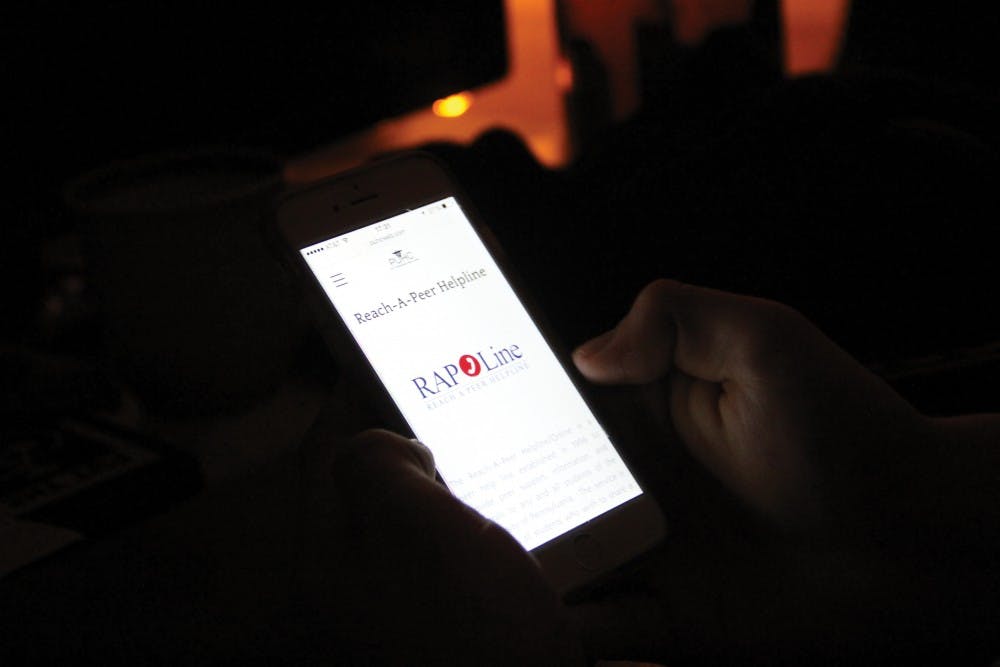
Reach-a-Peer Helpline is starting Lean on Me, an anonymous 24-hour text messaging service that enables students to get help and support from fellow peers
Credit: Morgan ReesReach-A-Peer Helpline officially launched its new Lean On Me 24-hour text message service at an event Sunday, making it the third service — after the calling service and the letter service — that RAP-Line offers for peer support.
The event featured students who spoke about why RAP-Line is important to them, who gave reasons ranging from personal experience battling mental health issues to just wanting to help out fellow peers. Students also discussed the value they envision Lean On Me having in their mission to provide even more peer support.
“I’m a big fan of talking on the phone, but I know not everybody is,” outgoing president of RAP-Line and College senior Mary Lindsay Cerulli said. “This is a way to just provide another medium for people to get support when they’re looking for help. And since texting is such a big part of how we, as college students, communicate, it’s important that RAP-Line offers that option as well.”
RAP-Line began in 1990 as a calling service and added letter writing as an additional peer support service in 1996. Now, RAP-Line will make Penn the third college campus nationwide — after the Massachusetts Institute of Technology, where the service originated, and the University of Chicago — to offer the Lean On Me text message service.
The process of adopting the Lean On Me platform has expanded over six months, since a representative from Lean On Me at MIT contacted Cerulli this summer. RAP-Line’s standard weekly semester-long training process for new members included additional sessions focused on how to communicate support via text message. RAP-Line’s president and College junior Caitlin Doolittle said while some of the strategies used for phone calls — like focusing on tone and repeating things back to the callers — might not be transferable to text messages, the underlying sentiment is certainly not foreign.
“If you think about the way we support each other in our day-to-day lives, a lot of times we’re supporting our friends through text messages,” Doolittle said. “So we’re trying to draw on the experiences that people already have of doing that — and most of our staffers have that experience — and pull that into the RAP-Line context.”
Unlike day-to-day life, however, RAP-Line is unique in offering complete anonymity. Other than the RAP-Line staffers on the executive board, none of the 40 staffers is allowed to divulge his or her identity or share with anyone that he or she is involved with RAP-Line. Lean On Me takes this anonymity a step further by removing any possibility that a caller might recognize a staffer’s voice or vice versa by providing a digital platform where numbers are completely encrypted.
Being involved in RAP-Line has gotten Doolittle to appreciate the value of peer support, especially being at college where, Doolittle said, you are in constant search of balance between adhering to the expectation of behaving as adults, while still being treated as kids.
“We are the ones who can understand what other people are going through,” Doolittle said. “Even if you find balance one day, the next day it might not be the same and knowing that things are unpredictable, those are the times where we need to support and honor one another.”
The Daily Pennsylvanian is an independent, student-run newspaper. Please consider making a donation to support the coverage that shapes the University. Your generosity ensures a future of strong journalism at Penn.
Donate







